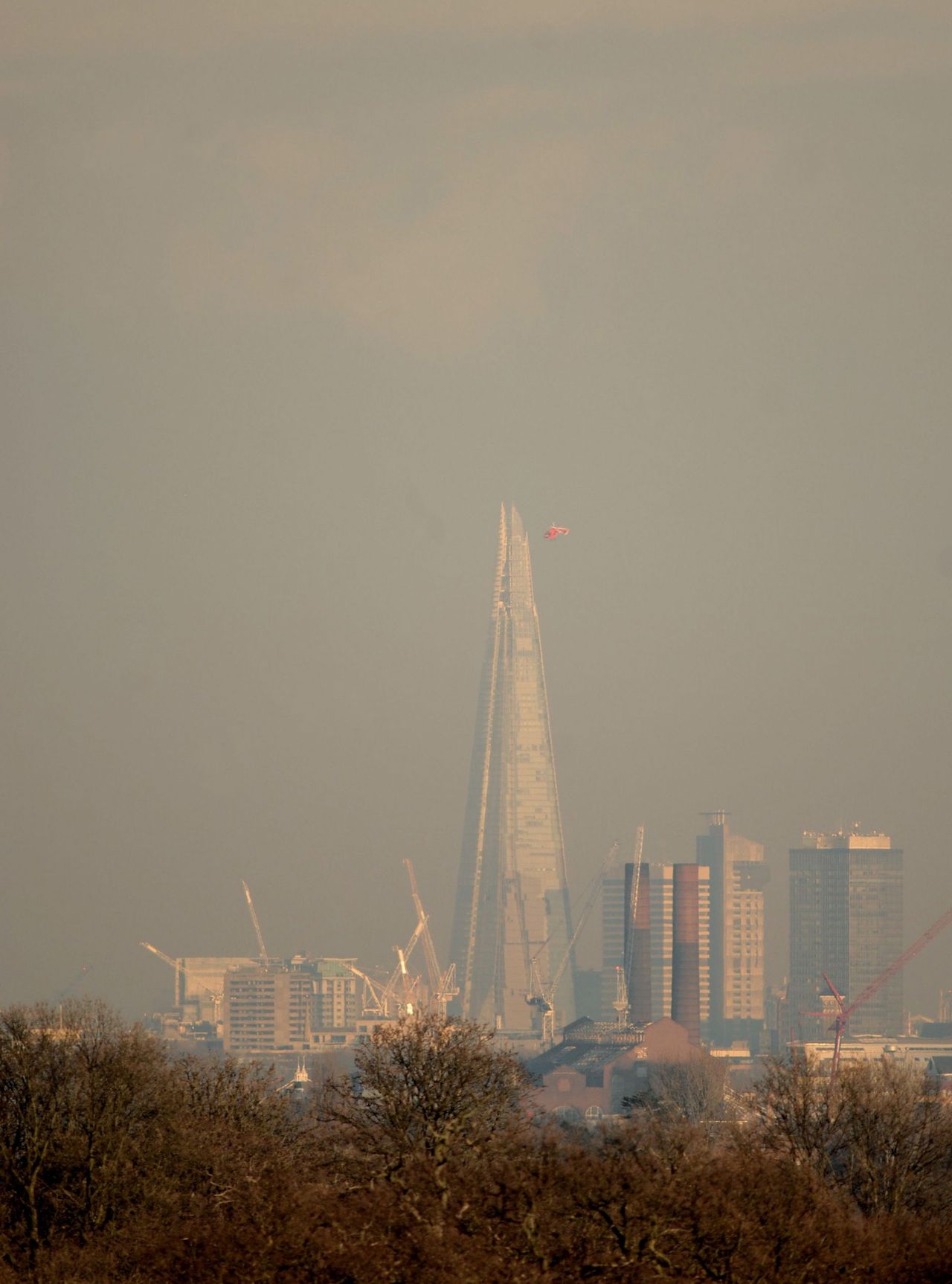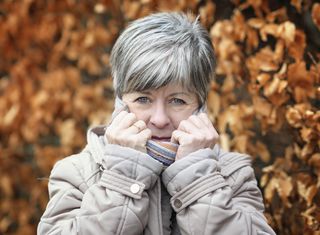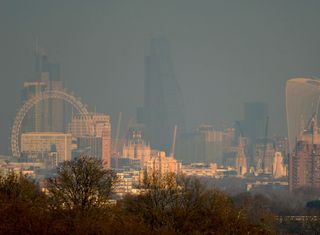Is Your Environment Making You Fat?

If two identical twins ate identical meals and stuck to the exact same exercise regime, they'd take the same dress size, right? Actually, unless they lived, worked and socialised together too, they might not. Scientists believe that environmental factors could be having a greater impact on our waistlines than we ever thought possible. Traffic, street lighting, even the very air we breathe can affect the way our bodies burn and store fat. Read on to discover some of the surprising ways your environment could affect your weight - and what you can do about it.
Noise
Road, railway and aircraft traffic could add bulk to your belly. According to new research, every 5 decibel increase above 45 decibels (i.e. light traffic noise) in the level of ambient noise around your home adds 2mm to your waist measurement. Living under a flightpath doubles your risk of obesity.
Why? Loud noise is interpreted as a stressor by the body, and activates the 'fight or flight' response. Chronic exposure to noise pollution can result in chronically elevated levels of cortisol which, in turn, have been linked with weight gain, particularly around the midriff. Even the relatively low levels of noise associated with working in an open-plan office have been linked with stress hormone spikes.

Ears under siege from noisy neighbours, coworkers or train drivers? Playing soothing music through noise-cancelling headphones could help buffer the impact of noise on your health - and belly.
Temperature
Many people believe they're metabolically programmed to gain weight when temperatures drop. They're wrong - your metabolism is actually more efficient during the winter months. When ambient temperatures are lower, your body burns more calories in order to maintain its normal core temperature. Exposure to 'mild cold' increases calorie burn by around 6%. Spend 10% of your time in a chilly environment and you could lose almost a kilo a year without even trying, according to scientists!
Sign up for the woman&home newsletter
Sign up to our free daily email for the latest royal and entertainment news, interesting opinion, expert advice on styling and beauty trends, and no-nonsense guides to the health and wellness questions you want answered.

So could our central heating be making us fat? It could well be a factor, according to researchers. "19°C is enough - and not for the whole day," warns Dr Wouter van Marken Lichtenbelt. Confusingly, though, Dr Michael Daly has found that those who heat their houses above 23°C tend to be slightly thinner, an effect he attributes to sweat-induced energy burn and decreases in appetite and calorie intake.
Smell
Do the aromas exuded by inconsiderate colleagues or family members munching on yummy snacks reliably derail your attempts to eat healthily? Sweet, chocolatey scents really do increase your appetite. And it's not a case of 'out of sight, out of mind' either - the better you are at imagining food smells, the more likely you are to be obese.

Scent can pack more power than you might have imagined - up to 90% of the taste experience can actually be attributed to smell, according to scientists. But you can use this to your advantage, if you know how... The scents of grapefruit oil, peppermint oil, bananas and green apples have all been found to suppress appetite and curb calorie intake. Scientists recommend ditching the chocolate eau de toilette for a bottle of grapefruit or peppermint oil - stash it in your bag and take 3-5 deep breaths every 2 hours.
You can also trick your body into thinking you've eaten more with some canny cooking choices. People tend to consume fewer calories after smelling olive oil, or eating a meal packed with highly scented herbs, spices or citrus fruits.
Air pollution
Yes, the very air we breathe could be making us fat. Microscopic particles produced by traffic fumes and cigarette smoke are thought to be the prime culprits. According to scientists, they can trigger systemic inflammation and disrupt metabolic function. Mice exposed to air pollution produce larger fat cells and develop more fat around the belly and internal organs. Passive smoking and air pollution have both been associated with weight gain in humans, too. Children born in highly polluted areas are more than twice as likely to become obese. And if you're unlucky enough to be exposed to traffic and tobacco fumes, your cumulative risk of obesity is greater than the sum of the two combined.

City dweller? Then it's even more important to ensure you get enough sleep, exercise regularly and eat plenty of anti-inflammatory, antioxidant-rich foods in order to 'mop up' the damage.
Household chemicals
But could the air we breathe inside the 'safety' of our own homes be just as hazardous? Perhaps, according to recent research. Soaps, household cleaning products and air fresheners contain a variety of synthetic chemicals which scientists are terming obesogens - frequent exposure to these chemicals can disrupt hormone function and change the way our bodies metabolise fat. The dust they produce has also been linked with health problems ranging from infertility to cancer.

Ready to pour your toilet cleaner down the toilet? There's a natural alternative to almost every household product you can think of. Try the Ecover or Ecozone ranges, available online and from mainstream stockists.
Artificial lighting
Could you be gaining weight while you sleep? Research indicates that the more light you are exposed to at night (this includes everything from the street lamp outside your bedroom window to your digital alarm clock), the more likely you are to be obese. Workouts and calorie counting won't necessarily protect you, either - in mice on identical eating and exercise schedules, those exposed to more artificial light put on 50% more body fat. Researchers believe that light exposure raises cortisol levels, disrupts the body clock and slows the metabolism.

The fix? Aim to make your bedroom as dark as possible. Invest in blackout curtains and an eye mask, charge your phone in another room and buy an analogue alarm clock. Then sleep easy.
-
 Dr Hilary Jones reveals the two 'ideal' exercises for losing weight and keeping it off for good
Dr Hilary Jones reveals the two 'ideal' exercises for losing weight and keeping it off for goodThe doctor appeared on Lorraine to share his tips on how to burn more calories in the gym, outdoors or at home
By Grace Walsh Published
-
 Denise Lewis’ sultry take on the lace trend has convinced us to give it a go at our next special event
Denise Lewis’ sultry take on the lace trend has convinced us to give it a go at our next special eventDame Denise Lewis wore a sensational lace pencil dress to the 2025 MOBO Awards and it's a sophisticated way to wear this trend
By Emma Shacklock Published